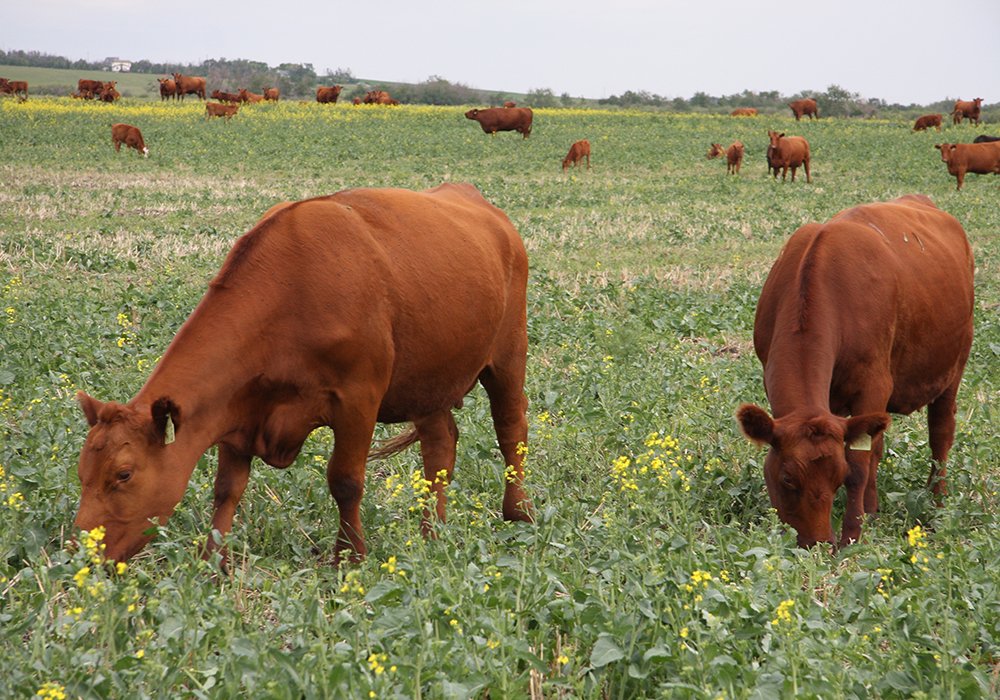Alta., Sask. cattle producers ask gov’ts for drought help

Alberta producers are advised to ask their municipalities to declare states of emergencies to trigger AgriRecovery relief
Widespread drought and unusually prolonged high temperatures have prompted Alberta Beef Producers to urge all levels of government to find ways to help ranchers and mixed farmers weather what is becoming a crisis.
“It’s extremely stressful on people — you can hear it in people’s voices,” said ABP chair Melanie Wowk, whose ranch is in the Two Hills area east of Edmonton.
“It’s the worst I’ve seen it in my 28 years up here, especially the heat.”
Affected beef producers are being advised to ask their local counties or municipalities to declare states of agricultural emergency, she said, which will enable the provincial government to trigger the federal-provincial AgriRecovery disaster relief framework.
“And we are asking for tax deferrals for those people that are going to end up liquidating part or all of their herds. If that’s possible, again, that’s got to be done by the federal government.”
Wowk said crop farmers faced with losses caused by the drought could also help beef producers.
“There’s a lot of crops out there right now that don’t look like they’re going to be viable, so we are really, really hoping that we can use a lot of those crops as a feed source.”
The Saskatchewan Stock Growers Association is also calling on the federal and provincial governments to take immediate action to help livestock producers across the province facing extreme drought conditions.
Multiple years of “well-below average precipitation have pushed livestock operators to the brink,” it said in a statement.
(Ed. note – on July 14 Saskatchewan announced some immediate drought relief, particularly for livestock producers who are running out of feed.)
As a result, the association is calling for measures such as time sensitive enhancements to Saskatchewan Crop Insurance Corp. programs and the Farm and Ranch Water Infrastructure program, along with an expedited AgriRecovery assessment and tax deferrals.
“Ranchers will be forced to disperse significant portions of their herds before winter,” association president Kelcy Elford said in the statement.
“We’ve halving our cattle and incomes. We need relief now.”
Saskatchewan agriculture minister David Marit said he has heard from ranchers and mixed farmers about the situation. Although he noted producers had made business decisions about whether to participate in programs, he will be meeting with officials and looking at what he can do within existing programs.
He said he is concerned about farm stress among producers, and encouraged them to contact the Saskatchewan Farm Stress Line at 1-800-667-4442.
Alberta agriculture minister Devin Dreeshen said in an email the Alberta government “is willing to engage Ottawa with an additional AgriRecovery program. Alberta’s Water Pumping Program is also available to provide assistance to producers in securing adequate water supplies for domestic, livestock or agricultural purposes….
“We will continue to monitor the situation and work with the (Agriculture Financial Services Corp.) and other provinces to make sure farmers and ranchers have the supports they need.”
Drought conditions in “some areas in the south are actually estimated to be at a one in 50-year moisture deficit,” Karin Schmid of ABP said in a statement quoting an interview that aired in late June.
“And in the Peace region, it’s a one in 25-year moisture deficit.”
Many beef producers are “sitting in the bubble” due to the crisis, said Wowk.
“I think our biggest issue is that producers that sell their cattle herd, I believe that a number of those producers won’t come back (as beef operations).”
Consumers are already facing high beef prices, she said.
“I wish I had a crystal ball and say what’s going to happen.”
Source: www.producer.com

